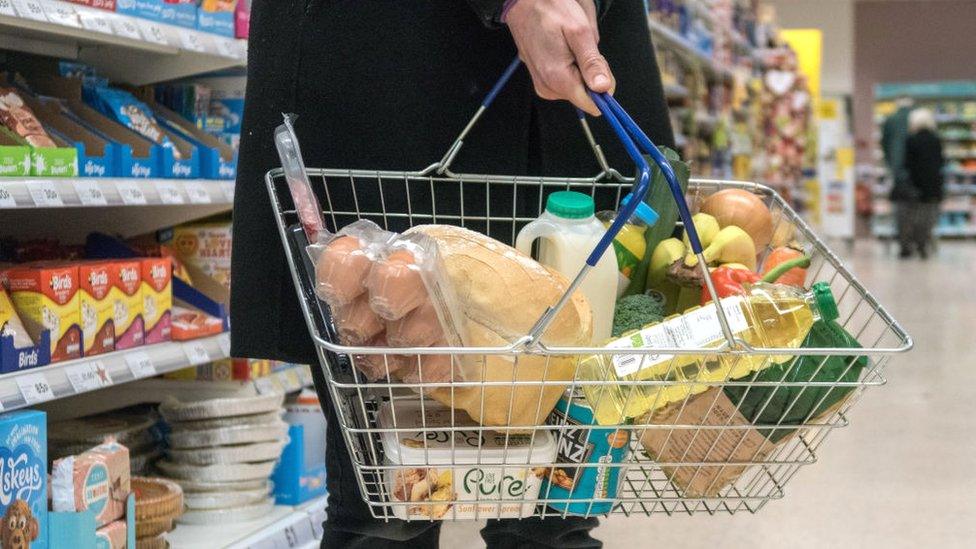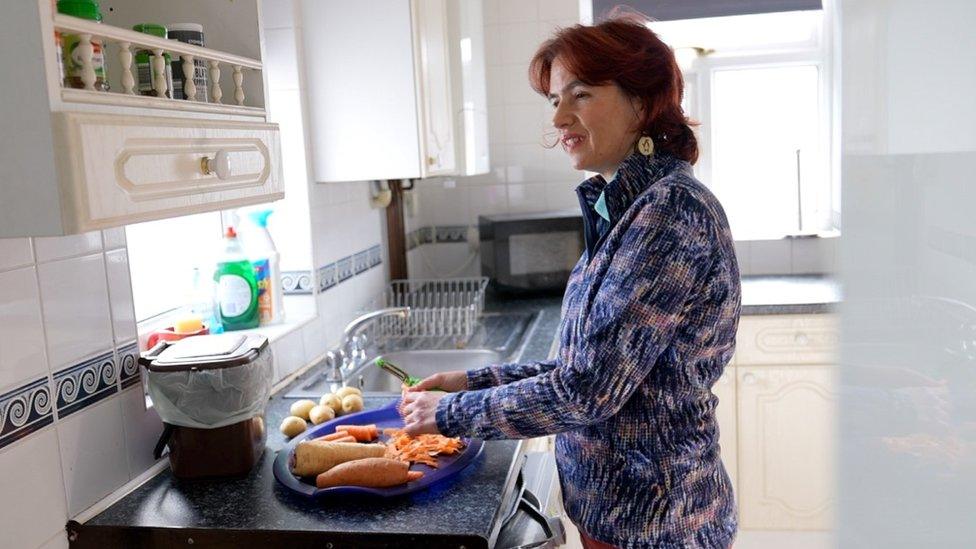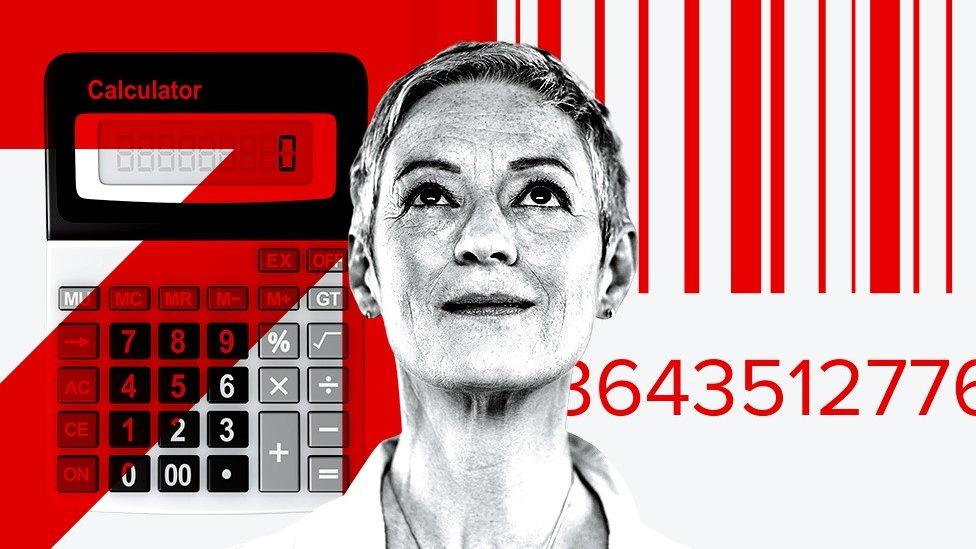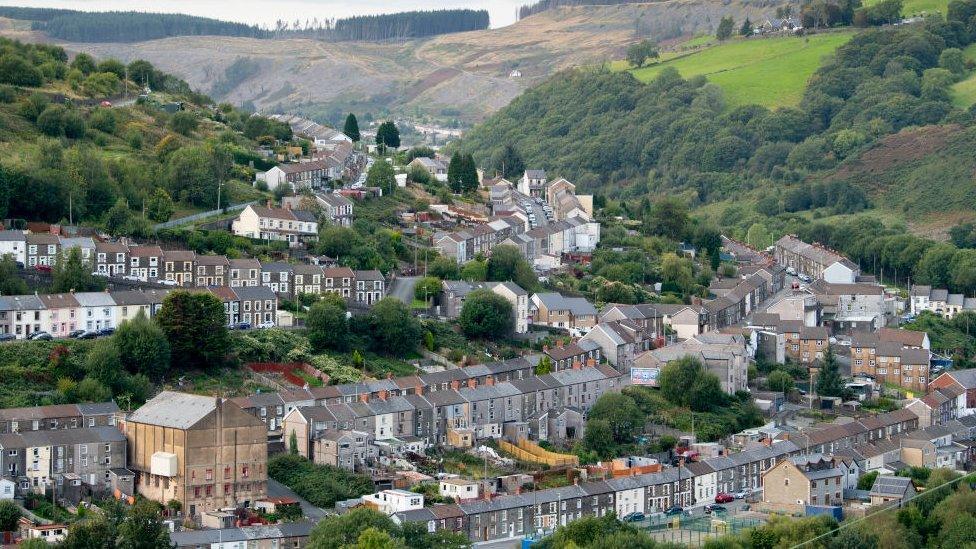Cost of living: Blind psychotherapist seeks extra job to pay bills
- Published
Psychotherapist Nicki Cockburn is looking for a second job to cope with the cost of living
As patients cancel their appointments as they struggle during the cost of living crisis, psychotherapist Nicki Cockburn is trying to get a second job.
The 44-year-old, who is blind and lives with her mother in Cardiff, is trying to cut costs but fears the months ahead.
"We can't put our prices down too low because we've got to eat as well," she said.
She spoke as figures show UK inflation has risen to 10.1%.
This 40-year high has been pushed by the rising cost of food and non-alcoholic drinks as well as soaring energy bills due, in part, to the war in Ukraine.
"It's so difficult because we were trained to help people and we want to help people," she said.
"But we've also got bills to pay. We've also got families that we need to look after. So it's just awful."
"We have to think. Do we need to put the heating on? Can we just put another jumper on? Are we going to be able to cope?" she added.
The Welsh government has said that disabled people will be disproportionately affected by the rising cost of living.
This can be due to lower employment levels and lower incomes, and many disabled people are also reliant on taxis or adapted vehicles.
Ms Cockburn said she has now had to give up on many of her hobbies, due to the rise in fuel prices.
"[It's] a bit sad, because I like going into the city to the theatre and stuff, but it's just not worth it because the taxi prices will be so high," she said.

The mother and daughter have already made changes to try to cut costs.
Measures they have used include batch cooking meals at the beginning of the week and washing clothes at specific times when electricity is cheapest.
Their smart meter has also become an important household appliance to measure energy use.
It is not enough, and she is now searching for a part-time job to make sure they can afford gas and electricity bills over the winter and beyond.

Nicki is now batch cooking to save on energy
On Monday, it was announced a scheme to cap all household energy bills for two years will be reviewed next April.
'Calm before the storm'
Chancellor Jeremy Hunt said the most vulnerable would continue to be protected from soaring wholesale energy prices beyond the spring.
But looking ahead to winter, Nicki has concerns.
"I don't think it's really hit people yet. So it's kind of like the calm before the storm," she said.
"I don't think we've got the part where it's all kicked off and I think that's what's worrying people.
"When it does, what's going to happen?"
Your device may not support this visualisation
What is inflation?
Inflation is the increase in price of something over time.
For example, if a loaf of bread costs £1 one year and £1.10 the next year, then that's an annual inflation rate of 10%.
In the UK, this is worked out every month by the Office for National Statistics, which notes the prices of hundreds of everyday items that we buy, known as the "basket of goods".
The Bank of England is expected to keep raising interest rates to try to control inflation, making mortgage payments more expensive for some homeowners.
- Published17 July 2024

- Published12 October 2022

- Published28 July 2022
